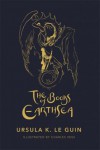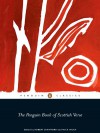Arbie's Unoriginally Titled Book Blog
It's a blog! Mainly of book reviews.
Currently reading
The Complete Guide to Asperger's Syndrome, Tony Attwood

Tony Attwood is a therapist rather than a researcher and that is reflected in this somewhat incomplete Guide to Asperger's Syndrome. If you want a comprehensive description of the Syndrome, the ever-changing diagnostic guidelines and the individual symptoms, this is the book for you. If you want an extremely thorough over-view of all available therapies/interventions/support services and their efficacy this is most certainly the book for you. If you want a summary of the current state of research into causes of autistic behaviour, you will need to look elsewhere as there's a total of less than two pages on the subject.
The book focuses heavily on childhood and adolescence but does not completely ignore adulthood; I think this just reflects where the effort has been put with regard to helping Aspies - there's just much less support for adults available. Because of the focus on ways of helping Aspies with their social problems, there is comparatively little discussion of their strengths, but Attwood is clearly aware of these strengths, appreciative of the positive things Aspies can offer society and sympathetic to their cause. Nevertheless, particularly early on he does make quite a few value-judgements that I feel are entirely subjective and out of place. He also use "empathy" in a technical sense that is not what non-psychologists would generally assume it means - but doesn't explain this specialised usage for several more chapters. This potentially helps fuel an incorrect and very negative stereotype about Aspies - that they have no empathy - which is completely without foundation.
The tone is quite dry, somewhat academic, but not excruciatingly dull. It is heavily referenced for those who wish to dive into the research literature. Various case histories and anecdotes leaven the text and for the most part I think it's readily accessible to the general reader. The book will be of most use to parents of Aspies and I believe Attwood had that readership in mind when he wrote it.
 2
2










